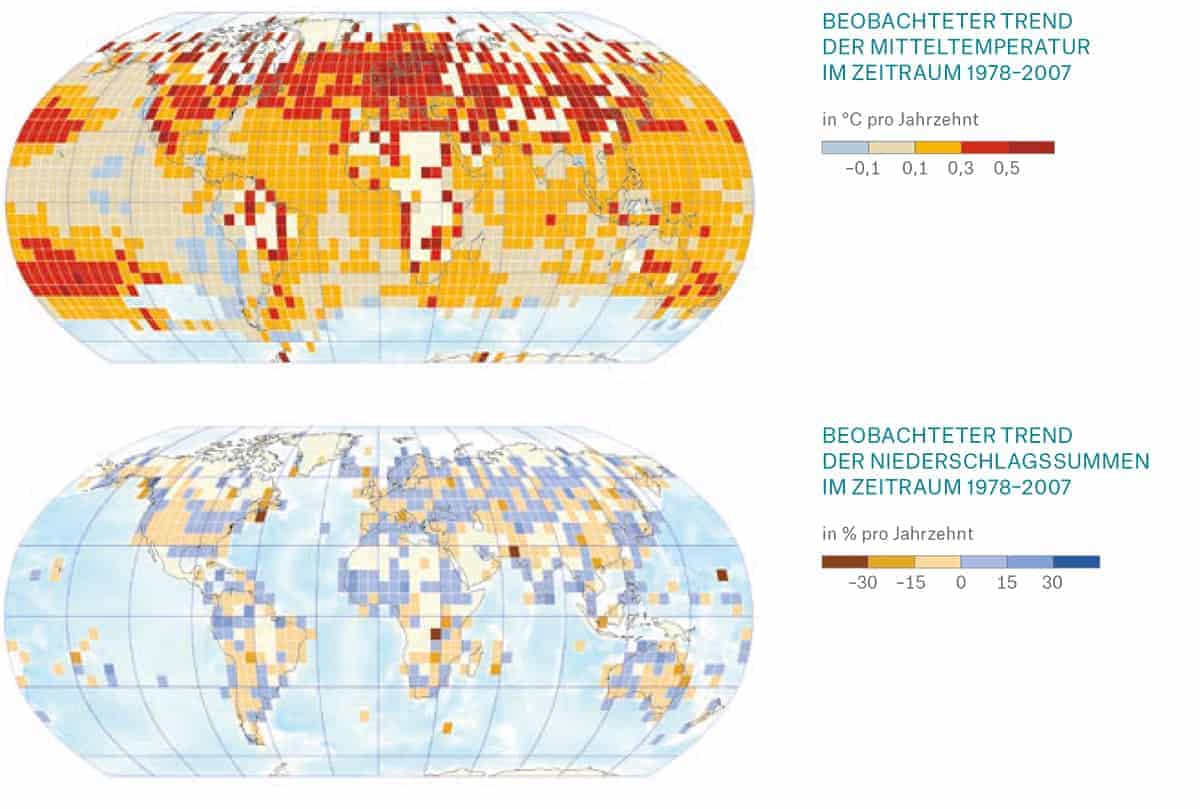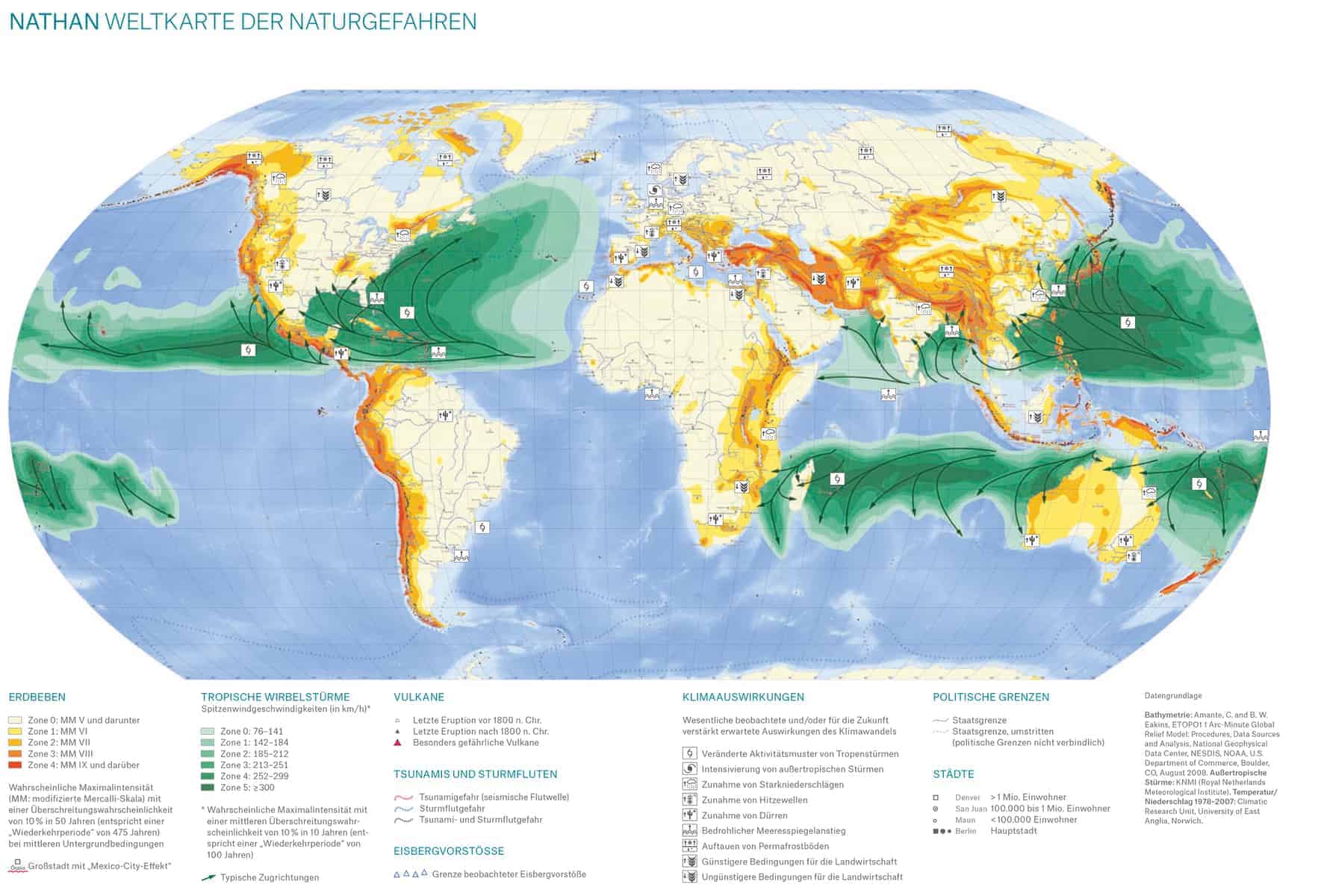For over 40 years, one of the largest insurance companies in the world, Munich Re (formerly Munich Re), deals with the topic of climate change and its effects. That's her business. As expected, the result is not very pleasing: worldwide, as evidenced by the World Map of Natural Hazards of Insurance (see below), the extreme weather events will continue to increase. For 2016 alone, 750 single events have been classified as natural disasters - with an estimated total loss of around 50 billion dollars. Not counting those changes that are rapidly blossoming among others in Austria: more and more extreme rains between persistent, dry heat spells.

The study "COIN - Cost of Inaction: Assessing the Cost of Climate Change for Austria" has calculated the threat of damage to Austria's economy up to 2050. The result: climate change can cost up to 8,8 billion euros a year if the environment does not change. That the weather change takes place, has been known for some time, as the graphs show the changes in temperature and precipitation of 1978 to 2007. All the more sad that in this country environmental standstill prevails. Although 2015 has reached a decisive global climate agreement in Paris, actual results are not yet coming.
In this context, it is also clear that discussions about sustainable building are becoming absurd because they are viewed from the present. For homeowners, the question is: what will our regional climate look like in 10, 20 or even 50 years?
For good reason, it is already being warned that the housing costs of the future are not just for heating, but especially for cooling. Already, the cost of housing for cooling is ten to 15 percent.
A major factor in future energy efficiency will be the building shell and the associated insulation. The investigations carried out by the Viva Research Park in Wopfing, Lower Austria, for example, shed light on this. In ten research houses made of different building materials, the building materials manufacturer Baumit, together with research institutes, simulates real living situations and researches connections between building materials and their effects on health. Conclusion: In almost all Bauphysik- and comfort evaluations cuts the uninsulated house worse than the insulated houses. Not to forget: an uninsulated house consumes up to 250 percent more energy. And: The scientists of the FH Burgenland have intensively dealt with the structural-physical effects of the construction methods in their analysis. It has been shown that houses with good external insulation and internal mass store energy best and compensate for short-term temperature fluctuations optimally - whether hot or cold. Above all, the mass storage concrete protects against summer overheating.
Experiment with ice block
Very good evidence of the effect of sustainable building in the heat was recently provided by the NGOs Passive House Austria and Global 2000 Based on an experiment: half a ton of ice melted in April in two mini-houses. One of the houses was built in the passive house standard, one in standard construction. The block of ice in the standard house did not even last four weeks and finally melted before Mother's Day. The block of ice in the insulated passive house has withstood summer summer temperatures more than 60 percent longer. After one and a half months, there were still 20 kg of ice left. "This makes it clear that energy-efficient construction pays off both for a high degree of comfort in winter and in summer. The passive house protects much better from overheating even in summer, but on the other hand does not heat up climate change ", adds Günter Lang from Passivhaus Austria.
Photo / Video: Shutterstock.




